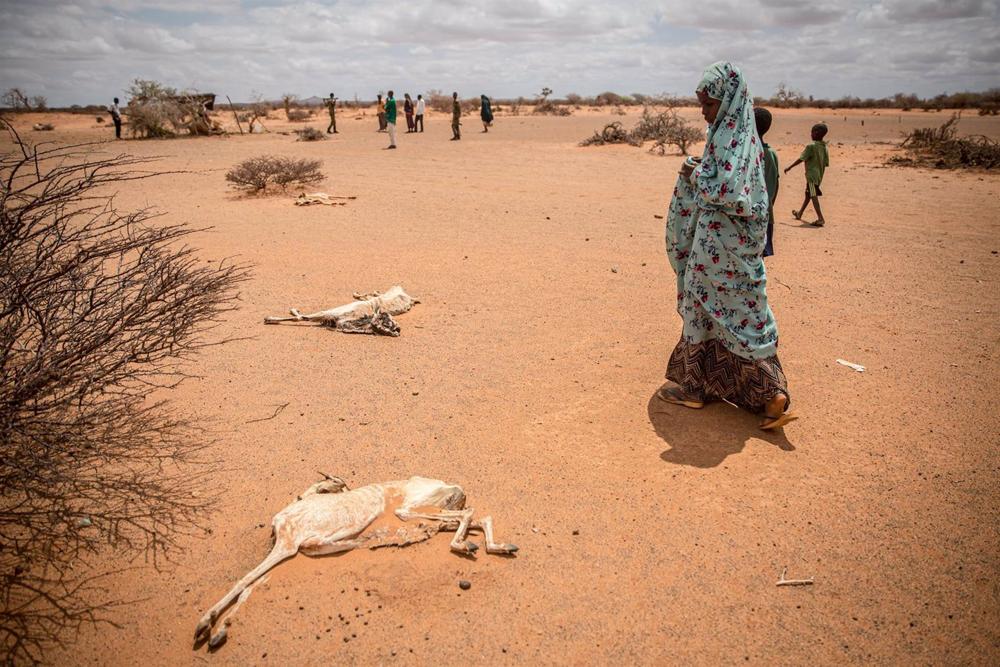
The United Nations Office for the Coordination of Humanitarian Affairs (OCHA) warned Wednesday that 7.6 million Somalis are on the brink of famine due to severe drought and internal armed conflict in the country and appealed for $2.6 billion to address the crisis.
Famine is a real possibility between April and June if humanitarian aid, on which 8.25 million people — nearly half the population — depend if the next rains are not sufficient, as current weather forecasts indicate.
OCHA’s humanitarian coordinator in Somalia, Adam Abdelmoula, has stressed that although the efforts of local communities and increased humanitarian aid helped contain the famine in 2022, still «millions of lives remain at risk.»
Somalia is currently suffering from the most severe and prolonged drought in its recent history, following the recent fifth consecutive season of insufficient rainfall, resulting in the displacement of more than 1.4 million people, the death of at least 3.5 million livestock and the destruction of other livelihoods.
«The people of Somalia are paying the price for a climate emergency that they did not help to create,» lamented Deputy Prime Minister Salah Jama, who called on the international community not to allow this crisis to be forgotten.
Although the technical thresholds of famine have not been reached, OCHA insists that «the situation is extremely alarming», with an «unusually high» increase in the number of deaths.
The food crisis is compounded by a health crisis as nearly eight million people lack access to clean water, sanitation and hygiene. «Cases of measles and cholera have increased compared to recent years.
The internal armed conflict is not helping to alleviate this situation either, as fighting and insecurity continue to hinder the distribution of and access to humanitarian aid.
So far, humanitarian organizations, local communities and government authorities have stepped up responses and have managed to reach 7.3 million people by 2022, but more and new resources are needed, as well as a plan to remove the obstacles to reaching those in need.
Source: (EUROPA PRESS)






